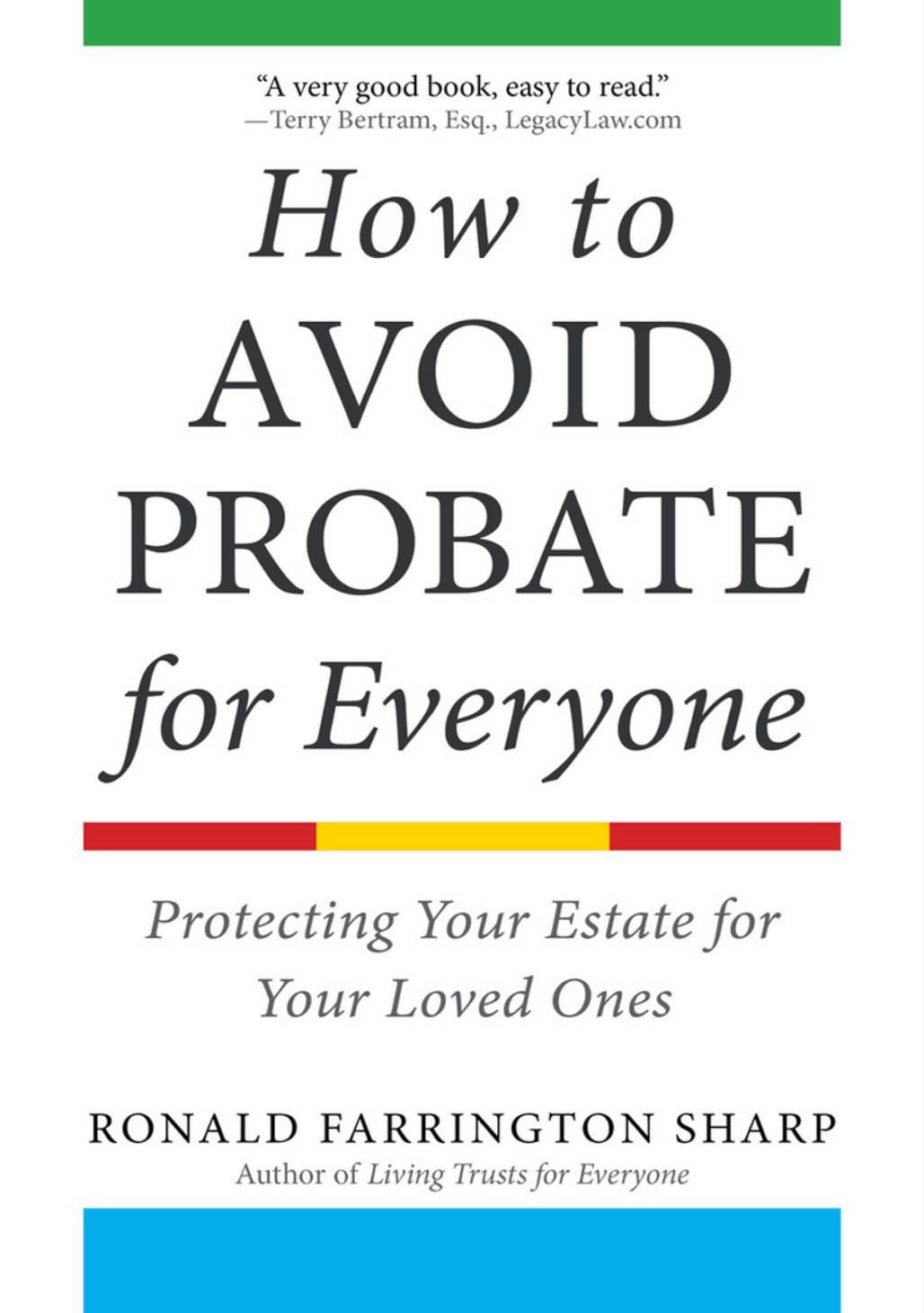Gifts
Probate only applies to assets left in the name of a person who has died. If that asset is given away before death, it is obviously not probatable since it was no longer in that person’s name. Certain assets have title certificates or some document stating the name of the owner, so those take care of identifying who owns that asset. The importance of identifying the making of a gift is to avoid not only probate of that item but also elimination of confusion among competing heirs-at-law.
Automobiles, boats, trailers, motorcycles, and the like have titles or registrations, so if you transfer title to another person the making of a gift is pretty clear-cut. Some states even allow “and/or” titles so that you can title your car in a name such as “John Doe or James Doe.” Then the vehicle belongs to whoever lives the longest, and either owner can sell it without the consent of the other. Other states will allow joint titles such as “John Doe and James Doe JWROS” (joint with right of survivorship).
Autos can also carry a TOD on the title itself in seventeen states. While any loans on the car would still have to be paid (typically in cash at the death of the borrower), no probate would be needed to transfer the title. The owner can change her mind at any time and either eliminate the TOD designation or change it to another person. But be sure to check with your auto insurance carrier if you change the title in any way to avoid problems in the event of an insurance claim.
There are even specific state laws that allow an automatic transfer of title to a vehicle or boat just by filing a form with the court and paying a small fee, if there is no probate case open and the value of all such vehicles is less than a state-mandated maximum.
Non-titled assets such as furniture, jewelry, collections, artworks and so forth, if valuable and/or subject to possible dispute among relatives, can be assigned to your trust, if any, or you can merely make out a list of the assets, whom you gave them to, and sign and date it. You should state that while you are making this gift immediately, you reserve the right to retain possession of it during your lifetime. Be sure the list will not be found or destroyed by any heir who might not agree with your decisions. Often family heirloom items are of greater interest to an heir than the money they might receive.
I have had lawsuits over purported gifts where the intention of the giver was unclear. In one case it was an antique billiard table—the deceased had said one of her daughters was to get it, but the other daughter, who had been storing it, said it was a gift. The daughter who had it ended up paying the other daughter half the value. The attorney fees to fight about the table were probably five times the value of the table, but neither side would give in.
In community property states, you should check with your lawyer to see if both spouses have to agree to a gift. If such consent is required and not gotten, the courts can overturn the intended gift.
The Gift Tax
If a gift is less than the taxable threshold for gift taxes, it passes to the person receiving it without any tax consequence. There is also no income tax on a gift, since it is not income. The annual gift tax exclusion amount for 2019 is $15,000 per donee, and there is no limit to the number of donees. Thus, a donor can give as many $15,000 gifts to as many people as desired with no upper limit, and a married couple has two exclusion amounts available annually. A married couple with four married children could gift $240,000 each year to their children and their spouses and still stay within the annual exclusion amount and would incur no gift tax.
But what if a person has a great deal of money that he wants to give away? The gift tax laws (as of 2019) allow a lifetime exclusion amount of $11,400,000, which is in addition to the annual exclusion amount. For a couple, this would be $22,800,000. With a properly timed gift there would be no probate, no income tax, and no gift tax. The gift does not have to be just cash. It could be investments, family businesses, real estate, or any other assets. Capital gains tax may or may not be an issue if the gift is structured properly to take advantage of a stepped-up tax basis in the property being transferred.
Most of us aren’t going to approach these maximums, but it’s enough to know that gifting will work in the right situations. There’s the lottery, right? Reducing the size of your probatable estate with gifts is a great tool, provided that there are enough assets left for the donor’s needs.
(To be continued...)

This excerpt is taken from “How to Avoid Probate for Everyone: Protecting Your Estate for Your Loved Ones” by Ronald Farrington Sharp. To read other articles of this book, click here. To buy this book, click here.
The Epoch Times copyright © 2023. The views and opinions expressed are those of the authors. They are meant for general informational purposes only and should not be construed or interpreted as a recommendation or solicitation. The Epoch Times does not provide investment, tax, legal, financial planning, estate planning, or any other personal finance advice. The Epoch Times holds no liability for the accuracy or timeliness of the information provided.





